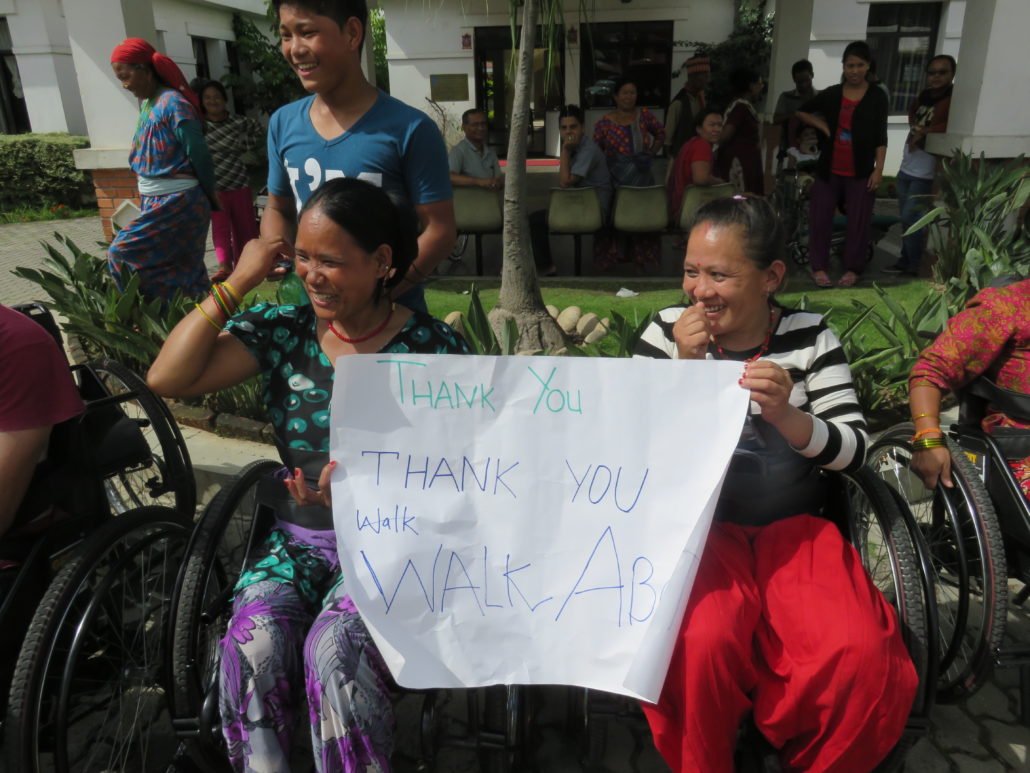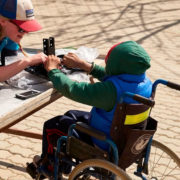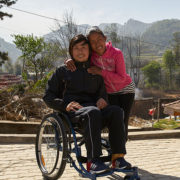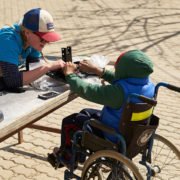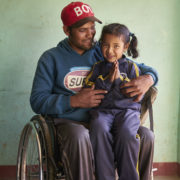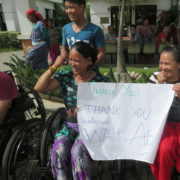Posts
Ram Krishna’s story
There are no upcoming dates for this event.
/in Stories /by Tiago Silva
Ram Krishna is from Nepal, and was working for a hydropower company when he was electrocuted while climbing an electricity pole 4 years ago. He and his then-girlfriend, Sarita, got married after his accident because “they realised how much they needed each other”. Our translator tells me this is very rare in Nepal – normally people leave their partners when they are injured, worried that they will have to care for them. Being a young person and dealing with a spinal cord injury must be incredibly difficult, but Sarita and Ram Krishna are so happy and clearly in love that, when you’re around them, it’s easy to forget the hardship they’ve been through.
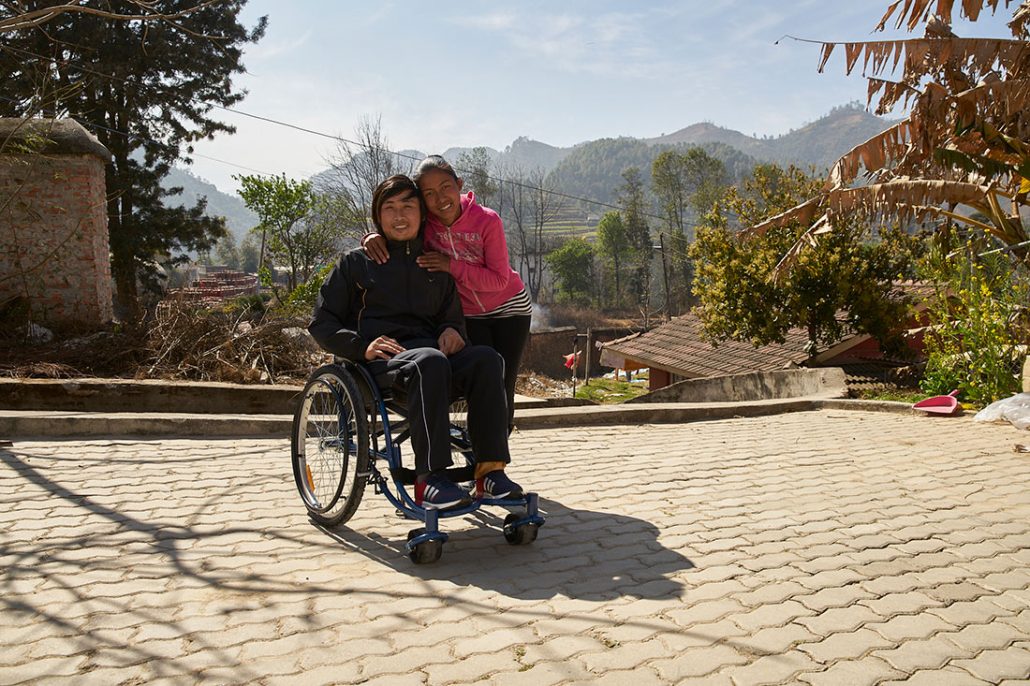
Siddanth’s story
There are no upcoming dates for this event.
/in Stories /by Tiago Silva
Siddanth is 12 years old, and lives in Nepal. He was injured in a road traffic accident when he was just 4. Because he had no wheelchair, his mother, unaware of the damage that it would do, kept him inside all the time – his father had left and she couldn’t afford to take him to school. When community outreach officers from our partner SIRC found him, he had multiple serious pressure sores, because he had been spending all his time lying in one room.
He was brought to the centre, where he received rehabilitation and treatment for his sores, and staff have made sure that he and his mother are staying in a hostel nearby so that he can attend school. Siddanth was clearly very shy when he arrived at the distribution (which is unsurprising, given that he has spent most of his life in just one room with his mother and has rarely interacted with others), but when he was asked to help put together one of the wheelchairs, he relaxed and enjoyed helping out. He especially loved the Coke and biscuit that he received as a reward!
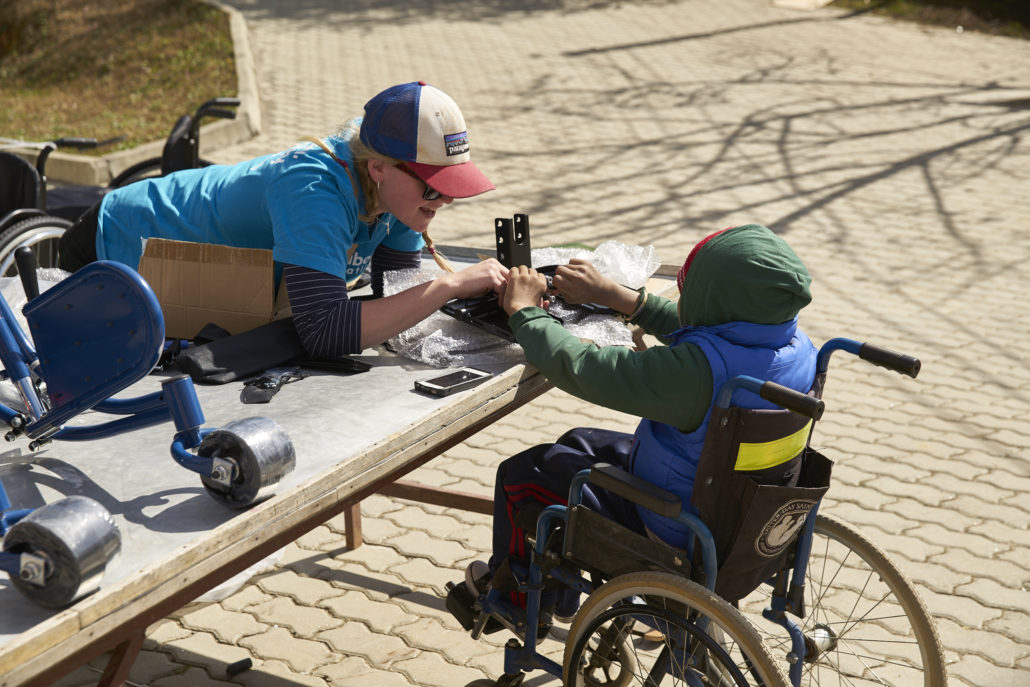
Nepal 2017
There are no upcoming dates for this event.
/in News /by Tiago Silva
In April 2015, a devastating earthquake shook Nepal, killing nearly 9,000 people and injuring nearly 22,000. A few months after, Walkabout sent a relief container of 100 wheelchairs, with the hope of restoring dignity, freedom and independence to the people who had lost so much.
The disaster may have been almost two years ago, but its presence is still being felt across the country. That’s why last week, we returned to Nepal to distribute 250 chairs to people with spinal cord injuries, alongside our local partner, Spinal Injury Rehabilitation Centre (SIRC).
Many people live extremely remotely in Nepal, and often those we met had travelled for many hours (and in some cases, even days) to receive their chair. Tulashi, pictured above, was injured when she fell out of a tree 9 years ago. She paid her neighbour to carry her for three hours just to reach the closest road to her village, and then spent two days on three buses to reach the centre, where she received a chair that means she no longer has to spend all of her time isolated and alone at home.
We spent the week building, fitting, and modifying 250 rough terrain wheelchairs – each of which represented a world of opportunity to its recipient; whether it was the possibility of starting a business, returning to work, or even just being able to leave the house alone to go to the market.
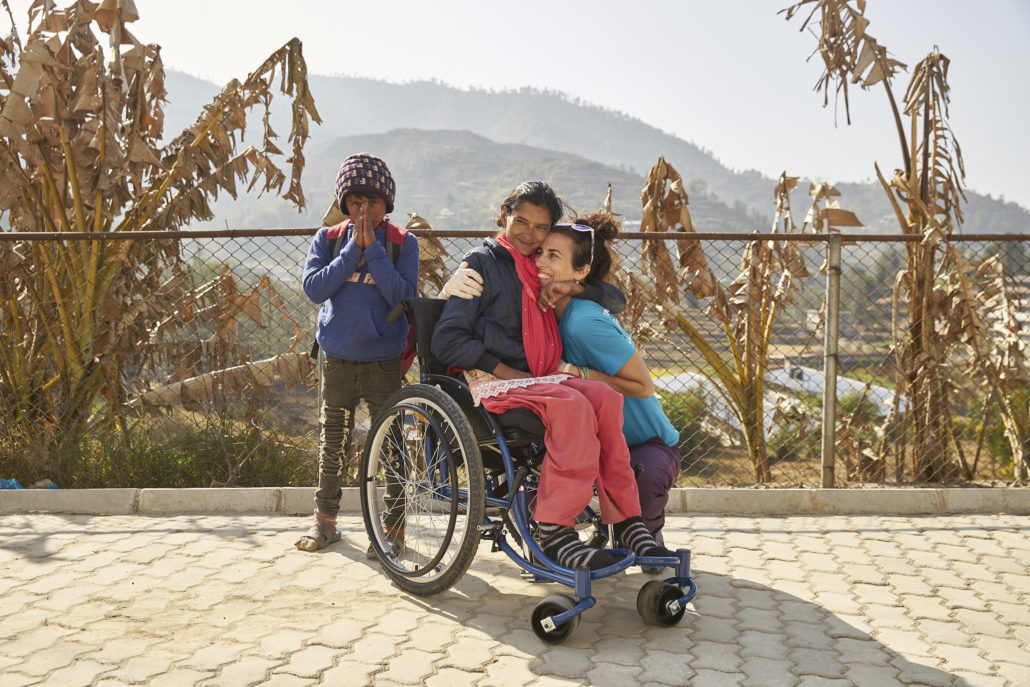
Nepal 2015
There are no upcoming dates for this event.
/in News /by Tiago Silva
A few weeks ago a cargo of highly specialised wheelchairs from Walkabout finally hit Nepal. It was a long and arduous journey from GRIT, our manufacturers in the South of India. Following the devastating earthquake back in April, only one particular type of truck, in high demand, is currently able to overcome the country’s now even more treacherous terrain.
Since the earthquake, the Spinal Injury Rehabilitation Centre for Nepal (SIRC) has been overwhelmed with the demand of those needing treatment and long term care for spinal cord injuries. The one hundred Leveraged Freedom Chairs (LFCs) we sent are no ordinary wheelchairs. Riders push levers instead of wheels, giving them the torque they need for the extremely rough and mountainous terrain of Nepal. SIRC were joined by an expert LFC technician from India and the seating team, Team Canada Healing Hands (TCHH), who had flown all the way from Canada. This skilled international team ensured each chair was fitted to the respective individuals’ body shape, size and needs. Furthermore, each recipient received wheelchair skills training, learning how to move around, maintain and repair their new wheelchair. This is an essential part of how at Walkabout we view wheelchair provision as often an incorrectly fitted chair, without the appropriate training, may do more harm than good.
We are extremely proud to have helped these one hundred individuals and the numerous others that this wheelchair will impact, in particular their families and communities. This was only possible due to all our wonderful donors who so promptly and generously supported our Nepal campaign and to whom we send a huge thank you. We would also like to thank our partners, SIRC, our suppliers, GRIT, and the TCHH seating team who all continue to do an incredible job. Thank you!
